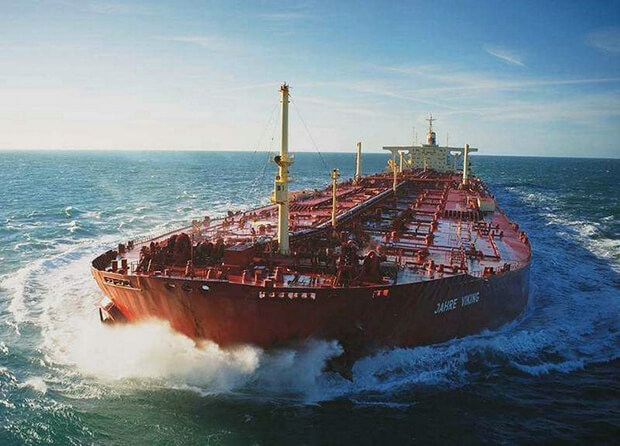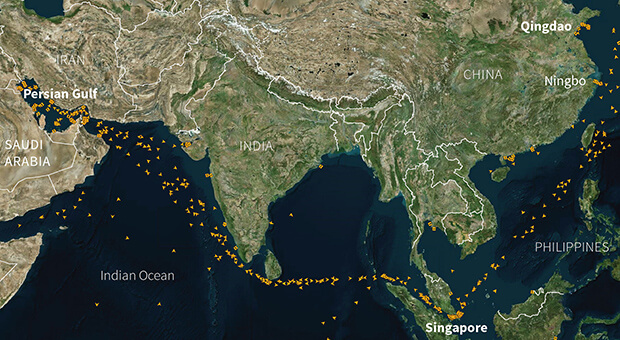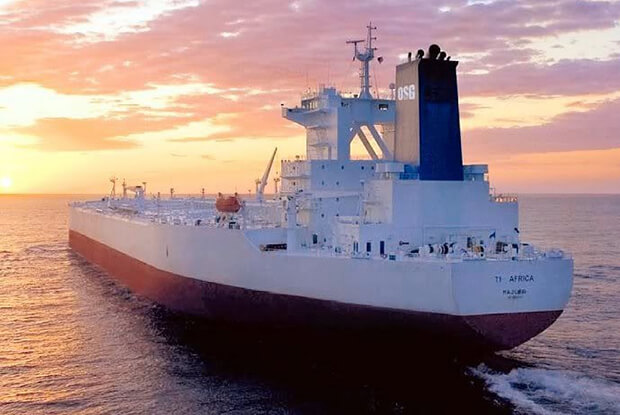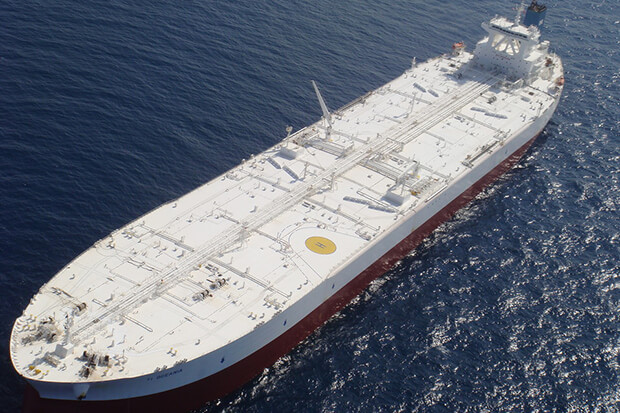Supertanker, Super Jam

Supertanker Super Jam
Global oil glut leaves supertankers in one of the world's biggest traffic jam
SINGAPORE: It may be the world's biggest traffic jam!
Due to a global glut in oil, ports are struggling to manage the number of supertankers waiting to offload and take on their oil supplies totalling some 200 million barrels of crude oil.
So much so, that supertankers have formed huge queues in some of the world's busiest sea lanes waiting to load or deliver.

World's busiest sea lanes
Around $7.5 billion worth of crude oil is just floating on the high seas. There are so many supertankers ready to land their deliveries that if lined up they would stretch for almost 40 km (25 miles).One captain with more than 20 years at sea said his tanker had been anchored off Qingdao in northeastern China since late March and delayed weeks before being able to offload the oil.
This Captain, who has requested to remain anonymous because he is not permitted under his company's rules to talk to the press said, "We've stayed here a long time," but added that another kind of jam was helping to alleviate the boredom.
"We have a piano, drums, crew who play guitar, they are not professional but they are coming good. We have more than 1,000 DVDs so there is no need to watch the same one 20 times."
The worst congestion of tankers is in the Middle East at the moment, as ports struggle to cope with the huge output available for export.
Ports in Asia, such as Singapore and other ports in Malaysia are also dealing with ravenous demand as consumers take advantage of cheap fuel.
Another Captain waiting to offload at the world's seventh busiest port said, "It's the worst I've seen at Qingdao," In the delay, his crew is killing time doing much-needed maintenance work.
The head of research at shipbroker Banchero Costa, in Singapore, Ralph Leszczynski, said the snarl-up was "one of the worst tanker traffic jams in recent years", the cause is "a perfect storm of red-hot demand from new entrant refineries in China and port infrastructure in the Middle East and Latin America that is unable to cope".

Knock-on effect
125 supertankers are now waiting in line at ports with the capacity to carry enough oil to supply the whole of China for three weeks.The combined daily cost for delays in landing fuel to ports is $6.25 million, based on current ship hire rates of around $50,000-a-day.
Daily tanker fees are typically borne by the fuel buyer but all the current port delays are having a knock-on effect across the shipping industry. One shipping logistics manager in Singapore had this to say:
"It messes up port schedules, catering schedules, crew schedules and the schedules of delivering the transported goods,"And for dealers, a month-long delay can turn a profitable trade into a painful loss. As one oil trader said:
"It also raises the cost for pretty much everyone involved."
"If you've bought 100,000 barrels of crude at $40 (a barrel) that'll cost you $4 million," oil trader.
"And if you've calculated another 1.5 million bucks for a month's worth of shipping, but you end up paying double that because your ship is stuck in port congestion, then that can seriously mess up everything from your schedule to your arbitrage profitability."
The unprecedented rise in global oil production, along with rising consumption is at the heart of the congestion. Since 2014, oil prices have come down by almost 70 per cent.

Dry ships and bored crews
Almost all supertankers on their way to Asia drop off at Singapore or other facilities in southern Malaysia.Singapore and Malaysia are basically the world's filling station for tankers and also a global refinery and ship maintenance hub.
Currently, there are at least 50 supertankers anchored in or close to Singaporean waters for refuelling.
For sailors stuck in a queue of anchored tankers, one of the biggest problems is simply whiling away the time.
Some of the supertankers are well-equipped for their crews, but many of these tankers are not. One crew member expressed his thoughts on the waiting around for weeks on end and the inevitable boredom.
"On my last one, we had no regular internet ... only an old TV with a couple of old DVD movies. The food is terrible and while waiting to offload we did pretty hard maintenance work. The sort of stuff you can't do when the engine is running."
Captain Alan Loynd, who spent more than 25 years at sea and is now a marine consultant, said long port delays were rare but could be tedious and isolating when they happened.
Unlike in previous times, having a few beers to break the monotony is usually out of the question. Sailors are just not what they used to be. The chances of getting ashore for crew members while they are in a super jam are remote. A lot of ships are now dry, so there's no alcohol on board, even on downtime.


Author

Justin Kavanagh
Justin Kavanagh is a recognised leader
in automotive intelligence and vehicle
data supply to the entire motor industry.
He has almost 20 years experience in
building systems from the ground up.
As the Managing Director of Vehicle
Management System, he understands the
need and importance of trustworthy and
reliable vehicle history and advice to
both the trade and the public.
Follow me on LinkedIn